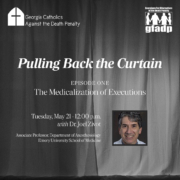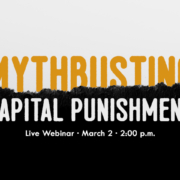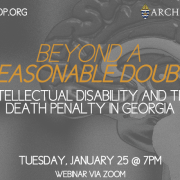Next up in the Pulling Back the Curtain Webinar Series
We continue this series with our discussion on The Legal Labyrinth of Capital Cases. Patrick Mulvaney, Director of Capital Litigation for the Southern Center for Human Rights, will walk us through the complicated legal processes of death penalty cases.




